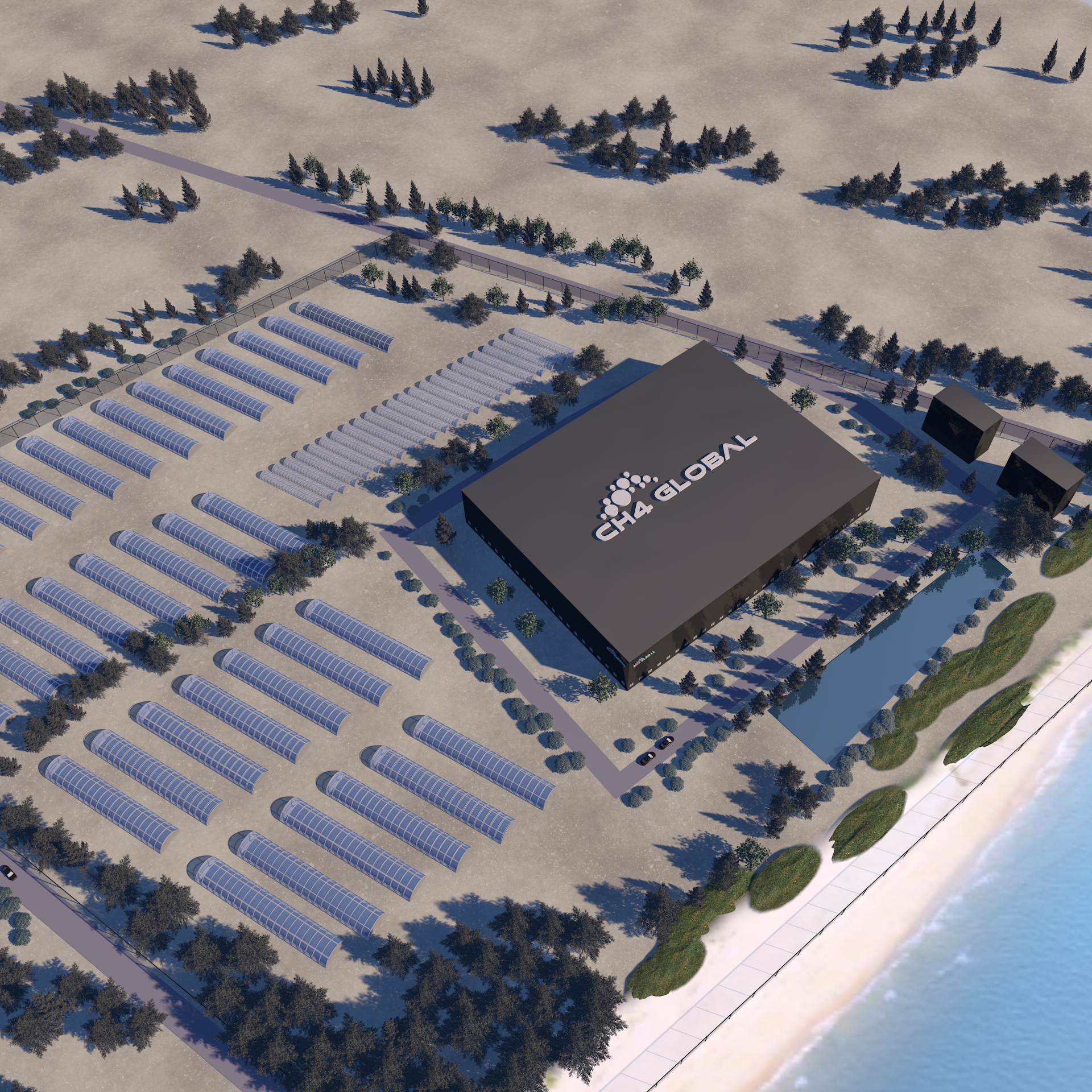CH4 Global, Inc., has signed a lease to build its first full-scale EcoPark, at Louth Bay on Eyre Peninsula, where it will grow and process enough Asparagopsis seaweed to supply up to 30,000 cattle per day in Australia and overseas.

Image Credit: CH4 Global
The Louth Bay EcoPark has been designed to sustainably grow methane-reducing Asparagopsis at scale. Asparagopsis, which is a red seaweed native to South Australia, has been found to drastically reduce methane emissions from cows and sheep by up to 90 per cent.
The state-of-the-art EcoPark will be built on land at Louth Bay and enable end-to-end production, with low impact, cost effective growing and processing of Asparagopsis seaweed along with the conversion into products under CH4 Global’s Methane Tamer™ line of products for the reduction of enteric methane in cattle and other ruminants.
CH4 Global External Relations Manager for Australia and New Zealand, Adam Main, said the Louth Bay EcoPark would include a seedling hatchery, patented in-land growing approach for Asparagopsis, and harvesting and drying technology.
Building our EcoPark at Louth Bay will create a vibrant and ongoing business in the region, provide local jobs and support communities - boosting not only Eyre Peninsula’s economy, but South Australia’s economy as well. This is about more than just the economic benefits for the region, it’s about methane reduction, slowing the effects of climate change and supporting farmers around the world to reduce emissions through Asparagopsis – which is native to our waters. These are exciting times for our team at CH4 Global as we expand our operations and work towards reducing methane emissions in the environment.”
Adam Main, External Relations Manager for Australia and New Zealand, CH4 Global
CH4 Global has production facilities at Arno Bay, Lonsdale in Adelaide’s south, and in New Zealand. The company has also been working with First Nations communities across South Australia.
Mr Main said CH4 Global had implemented a sustainable design framework for its EcoParks, guiding the use and management of energy and natural resources, waste and GHG emissions, and efficient use of eco-friendly materials. At the same time, CH4 Global is committed to contributing to the well-being of people and the communities in which the company and its subsidiaries operate.
CH4 Global has committed to preventing the creation of one gigatonne of CO2 emissions by 2030. To do so, CH4 Global needs to reach 150 million cattle —10 per cent of the world’s total - on all six habitable continents.